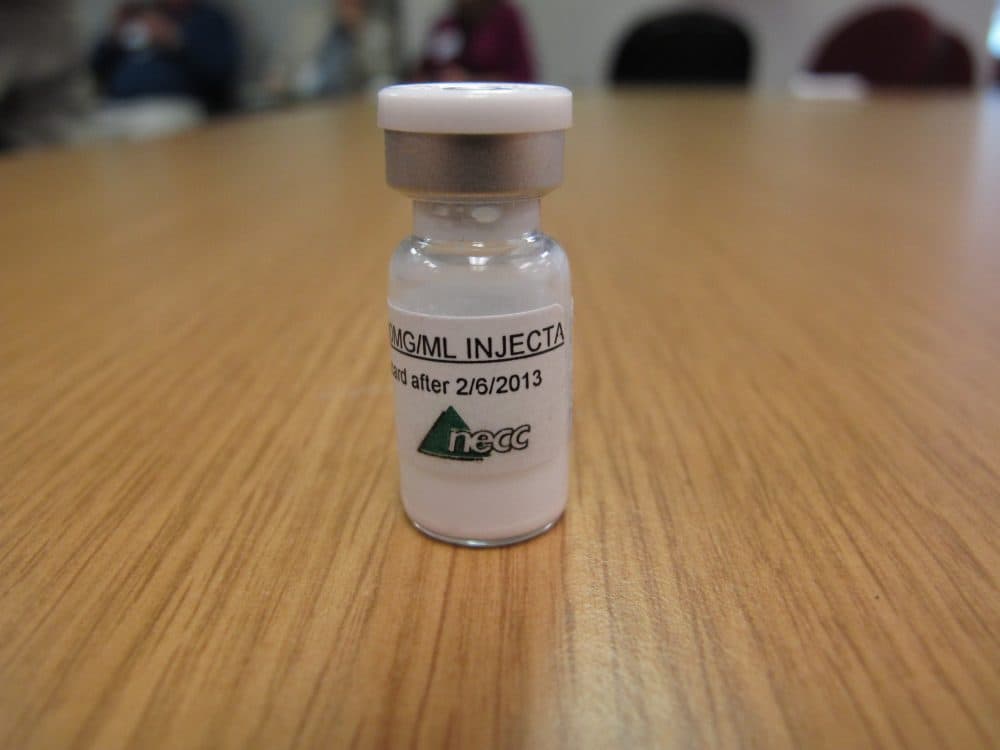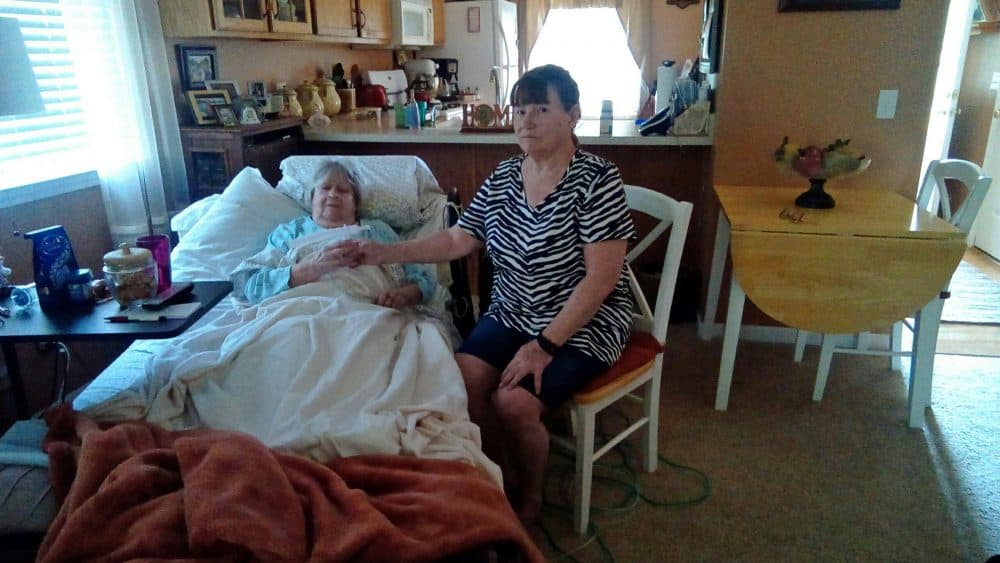Advertisement
'Justice Needs To Be Done Here': Many Victims Of Meningitis Outbreak Still Suffer

On Monday, opening statements gets underway in Boston federal court for a case that's drawing nationwide attention.
The man on trial is Barry Cadden, the co-owner and head pharmacist at the now-shuttered New England Compounding Center in Framingham.
Prosecutors say Cadden and others at NECC used expired ingredients and worked in unsanitary conditions as they produced an injectable steroid compound that treats pain.
As a result, prosecutors say, the steroid became contaminated by a fungus, and that caused many people who got the steroid to develop meningitis or other fungal infections.
Sixty-four of those people died. Nearly 700 more became ill, some severely.
Cadden is accused of causing 25 of those deaths, and faces charges of second-degree murder. He's pleaded not guilty. Cadden's attorney would not comment for this story.
The people with the most vested interest in the trial are the hundreds who lost a loved one in the 2012 outbreak and those who were sickened themselves.
For many victims, life is challenging and enveloped in continuing pain. Some people who've suffered have received compensation. Many have not; negotiations with insurance companies and others are slowing things down.
We spoke with three victims, and one caregiver. Below are interview highlights.
Bill Thomas, 62, of Lowell, Michigan

"The last injection — the steroid injection that I got in my spine — was for pain in my legs, pain and numbness, due to spinal cord injuries. During the course of the next few days, I felt like I was coming down with the flu ... I had trouble remembering things. I came down with an incredible headache that didn't go away. I had terrible neck pain, and my eyes were very sensitive to light."
"I've gone from being a person who walked two or three miles a few times a day. ... I used to go out a lot in wilderness areas and did backpacking. And now I only leave the house a couple times a week. I'm always tired and always in pain, I can't think. I get confused easily. ... I can't read like I used to."
"There's so much greed and carelessness and hubris involved. And I think that 25 counts of second-degree murder is getting off easy. Justice needs to be done here. Tremendous harm was done to a great many people, and that should not be forgotten."
Advertisement
Angela Farthing, 46, of Maryland

"I had fungal meningitis and was admitted to the hospital. When I was released, I ended up having a stroke and developed a brain aneurysm. I was readmitted, and I was there for almost another two months. ... I got very sick. I was vomiting all the time, had horrible headaches every day. I lost a good 30 pounds; I went down to 100 pounds. I lost a lot of my hair. I looked like the walking dead. My liver and kidney functions were failing. I missed about a year of work. And it was discovered later that I'd developed an abscess in my spinal cord. I had to have that surgically removed. But they could not get all of the abscess out, because they said if they would have sliced any deeper, they could have paralyzed me or I could have lost bowel or bladder function."
"[My husband] really suffered quite a bit when I was diagnosed. He had to take care of me, he had to bathe me, he had to change me, he had to do my IV. ... He had to take over cleaning the house and cooking and taking care of our dogs. It was very unequal and unfair to him. He was a recovering alcoholic, and unfortunately, he stopped going to AA meetings and he succumbed to his addiction. ... He took his own life. ... He was sober and he fell off track when I got sick."
Kathy Pugh, daughter and caregiver for her mother, Evelyn March, of Pinckney, Michigan
"[My mother had] an abscess in her back on her spine at the site of the injection of the tainted medicine. Now she's not doing well at all. It's pretty much 24/7 pain. She went from being a very vital woman with just sporadic problems with her back, to where she's bedridden in a hospital bed on oxygen, looking up at the ceiling. That's her life — occasionally trying to watch TV, but she finds it hard to concentrate for a very long length of time. That's one of the side effects of the anti-fungal medication, which it was 'take or die.' "

Evelyn March, 85
"My life's upside-down compared to what it was. I don't understand why things can be allowed to happen like that. Getting old is bad enough, but then to put something else on to it ..."
"I hope [Barry Cadden] gets his butt burned. I mean he, he, ... well, I'd better shut up, because I'd probably say more than I should say."
This segment aired on January 6, 2017.

